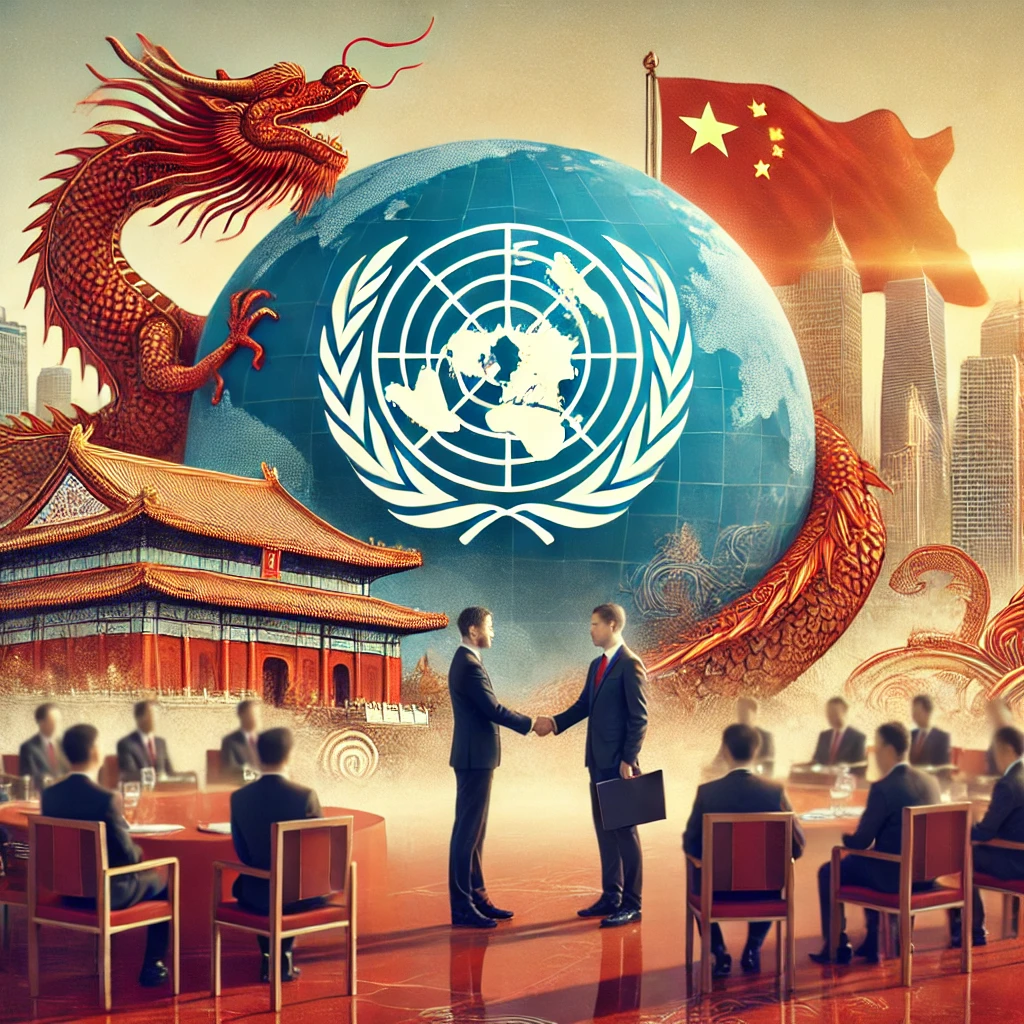China’s Strategic Engagement with the United Nations: Balancing Global Influence and Domestic Legitimacy
Author: Tarain Ali student of National Defence University (NDU), Islamabad:
China’s strategic engagement with the United Nations represents a complex and multifaceted approach to balancing its ambitions for global influence with its need for domestic legitimacy. This delicate equilibrium has been a hallmark of China’s foreign policy, reflecting its desire to reshape international norms while ensuring stability and support at home. This opinion piece explores the intricate dynamics of China’s interaction with the UN, highlighting both its achievements and the inherent challenges.
Historical Perspective:
China’s influence started to grow significantly since the People’s Republic of China became the legitimate representative of China at the United Nations. This significant moment marked the rise of China in the international system as it was then a part of a platform where its voice could be raised on global stage.
Balancing Act: Global Influence vs. Domestic Legitimacy:
Global Influence: China’s engagement and involvement with the United Nations has been marked by the pursuit of global influence. China is part of one the five permanent members of the United Nations and also possesses the power of veto. China has been able to shape a number of international decisions due to this power and position. These include the decision from peacekeeping to resolving conflicts. China has always promoted the vision of multipolar world and has also used its influence to advocate for a more balanced international order.
Through the contributions in peacekeeping, China has displayed its influence in UN peacekeeping missions. China has created its image of a responsible global actor in order to maintain stability and international security as now China is one of the largest contributor to the UN peacekeeping missions by sending not only its troops, but funds as well.
China has been aligning its ambitions and efforts to the United Nations as it is active in the realm of development and poverty alleviation that align with the Sustainable Development Goals (SDGs) of the UN. One of the major projects is the Belt and Road initiative that is contributing to development and also foster economic growth and connectivity. These initiatives and projects bolster China’s image and reputation in the United Nations portraying it as a leader in the global development.
Domestic Legitimacy: China’s projects and activities being part of the United Nations serve its global ambitions but they are deeply intertwined to its domestic goals. The international power and prestige of China has always been used by the communist party of China to enhance and bolster its domestic legitimacy. China counters the external criticisms and internal domestic dissent by strengthening and promoting its image of a benevolent and a constructive power.
Furthermore, the engagement of China with the United Nations can be viewed as its pathway to fulfil its core interests and to defend its sovereignty. Any step taken to challenge China’s sovereignty is instantly countered by China due to its position. This is why the issues of Taiwan, human rights and territorial disputes are very often discussed in the United Nations under its framework. Such assertiveness domestically resonates and reinforce the stance of government and rally public support.
Challenges and Criticism: Despite the strategic engagement of China with the United Nations, China has faced a number of criticisms and challenges. China’s human rights record particularly in the regions of Xinjian and Hong Kong are highly contentious. China argues that such steps and approaches taken by China completely align with the domestic laws of China; however, such justifications clash with the international human rights law.
Some of the principles of China put it at odds with the western democracies particularly those that are the member states of the United Nations. Such principles are the sovereignty and non-interference. This has led to tensions that China is probably using its power and position to shield itself from accountability. This is not only limited to the external world, rather, the people living in liberal urban regions in China are well aware of the global norms and are critical of the domestic policies that contradict the such global norms.
Whereas, concerns are raised for the future interests and intentions of China amid the growing assertiveness with the United Nations. Some of the countries consider China’s projects such as BRI as the tool for enhancing the influence and power of China and also the debt trap diplomacy.
The Future: Navigating the Dual Imperative
Looking forward, China will always try to balance its global influence and the domestic legitimacy. In order to attain its objectives, China has to take nuanced approach that address both the external and the internal imperatives. In order to further enhance the global influence, it is better if China seeks to play a more proactive and transparent role in solving the international challenges. The areas where China’s influence can be enhanced are the climate change, public health and conflict resolutions.
In a nut shell, the strategic engagement of China with the United Nations reflected a complex and multifaceted approach in balancing the global ambitions with domestic needs. This delicate balance can be navigated by China if China continues to contribute to global peace and development. China can continue to play a significant role on the global stage and secure its place as a leading global power if it continues adopting careful strategies as the path ahead will be undoubtedly challenging. China’s role at the United Nations will remain a focal point for understanding its broader strategic objectives and its vision for the future world order.




